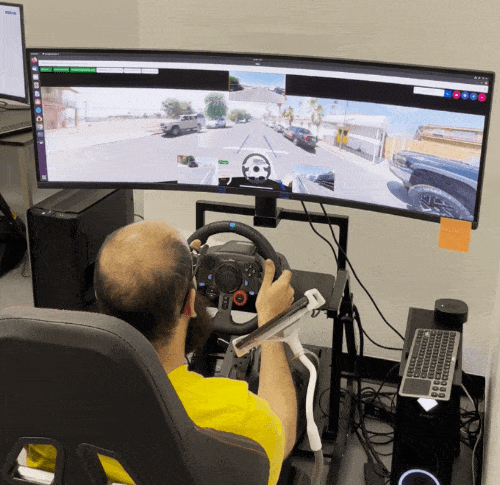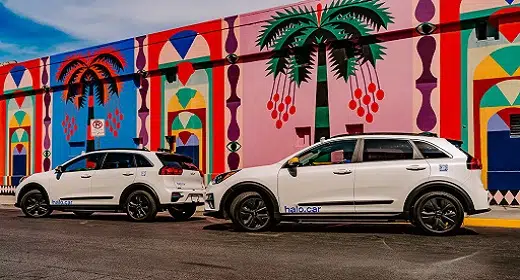by Jaclyn Trop: Halo Car, a Las Vegas-based startup that combines teleoperations and car sharing, said it will remove the human safety operator from behind the wheel later this year — the last hurdle before its commercial launch…
The milestone would mean Halo Car will use humans to remotely control vehicles through public streets and deliver them to its car-sharing service customers. These fully remote deliveries will mark the official launch of commercial operations and kick off a campaign to scale its fleet of electric vehicles and expand beyond Las Vegas.
The unique approach to car sharing has attracted several investors. The company said Wednesday it raised $5 million in a seed round led by climate tech fund At One Ventures, with participation from T-Mobile Ventures, Earthshot Ventures and existing investor Boost VC. The funds will help the startup expand into cities beyond Las Vegas and scale its fleet to 1,000 EVs by the end of 2023.
Halo Car’s model shouldn’t be confused with autonomous vehicle technology companies like Argo AI, Aurora, Cruise, Waymo and Zoox, which have developed self-driving systems designed to allow vehicles to navigate public streets without any human in the loop — either behind the wheel or remotely. Halo Car’s model provides remote human assistance at all times.
Halo Car’s business model crosses Zipcar, which requires customers to pick up the car wherever the previous user parked it, with traditional rental car companies such as Enterprise and Rent-A-Car. However, Halo Car delivers the vehicle directly to the next customer; think white-glove chauffeur service, without the white gloves or the chauffeur.
Founder and CEO Anand Nandakumar led perception for Uber’s self-driving unit Advanced Technologies Group. He developed the idea of using remote piloting in 2019 after leaving Uber. Looking at the 10-year horizon for fully autonomous driving, he thought remote human piloting could serve as a bridge to deploying driverless cars sooner.
Halo Car’s remote operators work out of the company’s Las Vegas headquarters, using T-Mobile’s Ultra Capacity midband 5G network, as well as extended range low-band 5G networks and on LTE when needed, to transmit video and data from the cars to a driving simulator. The human operator sits in the simulator, which features an oversized TV monitor, a steering wheel, pedals and a gearshift, and watches for pedestrians, bicyclists, cars, trash cans and other obstacles when the car is in driverless mode.

A teleoperator drives a Halo Car remotely. Image Credits: Halo Car
The remote pilot disconnects from the car once the customer is granted keyless access through Halo Car’s app. When they’re done, they leave the car for the remote human operator to retrieve and return it to headquarters, where it is cleaned, charged and parked waiting for the next ride.
If the vehicle loses connection to 5G networks, it is brought to a full stop.
Halo Car completed beta testing in Las Vegas earlier this year using two Kia Niro EVs retrofitted with six cameras but no radar, lidar or ultrasonics, a pared-down approach favored by Tesla. Past iterations of Halo Car’s technology stack used nine cameras, radar and ultrasonics to support the remote controlled operations.
During the beta phase, support operators sat inside the cars to oversee the remote piloted deliveries and were picked up and driven back to headquarters by a Halo Car employee.
Nandakumar positions Halo Car as a more cost-effective and convenient way to rent an EV without worrying about parking. The vehicles, which can be rented by the hour or at a flat daily rate, could help manufacturers increase their visibility and get more potential customers to try EVs. Both General Motors and Polestar are using that playbook, inking deals to supply Hertz’s rental fleet with up to 240,000 EVs over the next five years.
Clarification: Nandakumar developed the idea of Halo Car in 2019, after leaving Uber. The article has been adjusted to reflect the proper timing.









































